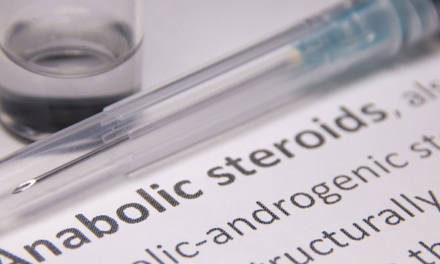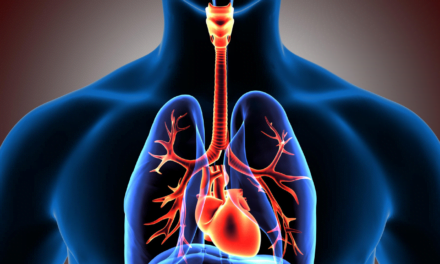Anabolic steroids are synthetic variations of the hormone testosterone, which are primarily used to increase muscle mass and improve athletic performance. While these substances are often used by bodybuilders and athletes, they come with a host of risks and side effects that can impact one’s health. This article will delve into how anabolic steroids affect the body, specifically in relation to body fat distribution and metabolism. Additionally, we will discuss the gender differences in the effects of anabolic steroids and the potential health implications associated with their use.
Anabolic Steroids
Anabolic steroids are synthetic versions of testosterone that mimic the hormone’s effects on the body. They are primarily used to increase muscle mass and improve athletic performance. Anabolic steroids work by binding to androgen receptors in the body, which then signal the cells to produce more protein, ultimately leading to an increase in muscle mass. There are many different types of anabolic steroids available, including testosterone, nandrolone, and stanozolol, among others.
However, anabolic steroids also come with a host of risks and side effects. Long-term use can cause liver damage, increased risk of cardiovascular disease, and the development of diabetes.
Body Fat Distribution
Body fat distribution refers to how fat is distributed throughout the body. It is well-known that anabolic steroids can impact body fat distribution, causing an increase in muscle mass and a decrease in overall body fat. However, it is important to note that anabolic steroids can also cause an increase in visceral fat, which is fat that surrounds the organs and can increase the risk of developing heart disease, diabetes, and other health problems.
Specifically, anabolic steroids can cause an increase in fat accumulation in the face, neck, and upper back. In men, they can also cause the development of gynecomastia, or the growth of breast tissue. Additionally, anabolic steroids can cause the development of a more masculine body shape in women, including increased muscle mass and a decrease in body fat.
Metabolism
Metabolism refers to the processes in the body that break down food and convert it into energy. Anabolic steroids can impact metabolism in several ways. They can increase the body’s basal metabolic rate, which means the body burns more calories at rest. Additionally, anabolic steroids can increase the body’s insulin resistance, which can lead to the development of diabetes.
Furthermore, anabolic steroids can impact specific metabolic processes, such as lipid metabolism. They can increase the levels of low-density lipoprotein (LDL) cholesterol, which is known as “bad” cholesterol, and decrease the levels of high-density lipoprotein (HDL) cholesterol, which is known as “good” cholesterol. This can increase the risk of cardiovascular disease.
The Impact of Anabolic Steroids on Health in the UK
Anabolic steroids are synthetic variations of testosterone that are commonly used by bodybuilders and athletes in the UK to enhance muscle mass and athletic performance. However, their use comes with significant risks and potential health implications for individuals in the UK. In this section, we will explore the specific impact of anabolic steroids on body fat distribution, metabolism, and the unique gender differences observed in the UK context.
Health Implications
The use of anabolic steroids can have serious health implications, including an increased risk of cardiovascular disease, diabetes, and liver damage. Long-term use of anabolic steroids can cause damage to the liver, leading to the development of liver disease, including liver cancer.
Additionally, anabolic steroids can cause an increase in blood pressure and an enlargement of the heart, which can increase the risk of heart attack and stroke. Finally, anabolic steroids can cause insulin resistance, which can lead to the development of diabetes.
Gender Differences
The effects of anabolic steroids can vary depending on the gender of the individual using them. In men, anabolic steroids can cause a decrease in sperm count, shrinkage of the testicles, and the development of breast tissue. In women, anabolic steroids can cause an increase in body hair growth, a deepening of the voice, and a decrease in breast size.
It is also important to note that the effects of anabolic steroids can be more severe in women , as they typically have lower levels of testosterone than men. Women who use anabolic steroids are at risk of developing more masculine traits, such as a deeper voice, increased facial and body hair growth, and an enlarged clitoris. In addition to these physical changes, women may also experience menstrual irregularities and infertility.
Comparing the effects of anabolic steroids between men and women can be difficult, as the dosages and types of steroids used can vary greatly between individuals. However, it is clear that both men and women are at risk of serious health consequences when using anabolic steroids.
Conclusion
In conclusion, anabolic steroids can have a significant impact on the body, affecting body fat distribution, metabolism, and overall health. While they may be used by bodybuilders and athletes to improve performance, the risks and side effects associated with their use can be severe. It is important for individuals to be aware of these risks and to use caution when considering using anabolic steroids.
Future research should focus on developing safe and effective alternatives to anabolic steroids, as well as better education and prevention strategies to reduce the use of these substances. By taking these steps, we can work to minimize the negative impact of anabolic steroids on individuals’ health and well-being.
FAQ
Q: What are anabolic steroids?
Anabolic steroids are synthetic hormones that mimic the effects of testosterone in the body. They are typically used by bodybuilders and athletes to increase muscle mass, strength, and performance.
Q: How do anabolic steroids affect body fat distribution?
Anabolic steroids can cause an increase in overall body fat, but they also affect how fat is distributed in the body. Specifically, they can lead to an increase in visceral fat, which is fat that surrounds the organs and is associated with an increased risk of cardiovascular disease and diabetes.
Q: What are the risks and side effects of using anabolic steroids?
The risks and side effects of anabolic steroid use can include cardiovascular disease, liver damage, infertility, mood swings, and increased risk of certain cancers.
Q: How do anabolic steroids affect metabolism?
Anabolic steroids can affect a variety of metabolic processes in the body, including protein synthesis, glucose metabolism, and lipid metabolism. They can also increase the basal metabolic rate, which can lead to weight loss.
Q: What are the health implications of using anabolic steroids?
The health implications of using anabolic steroids can be serious and can include an increased risk of cardiovascular disease, diabetes, liver damage, and certain types of cancer.
Q: What are the gender differences in the effects of anabolic steroids?
Men and women can both experience negative effects from anabolic steroid use, but the specific effects can differ. Men may experience testicular atrophy, decreased sperm count, and gynecomastia (enlarged breasts), while women may experience a deepening of the voice, increased body hair growth, and menstrual irregularities.
Q: How can individuals minimize the risks associated with anabolic steroid use?
Individuals can minimize the risks associated with anabolic steroid use by using caution when considering using these substances, and by seeking the advice of a medical professional before beginning use. It is also important to be aware of the risks and side effects associated with these substances and to monitor for any negative effects.
Author

Dr. Aditya K. Sharma
I am Dr. Aditya Sharma, a dedicated urologist specializing in kidney transplants and advanced urological surgeries. My career is driven by a passion for delivering exceptional care and pioneering surgical techniques. Outside the operating room, I have a keen interest in studying the effects of anabolic steroids on bodybuilding, seeking to understand the fine line between enhancing performance and maintaining health.








